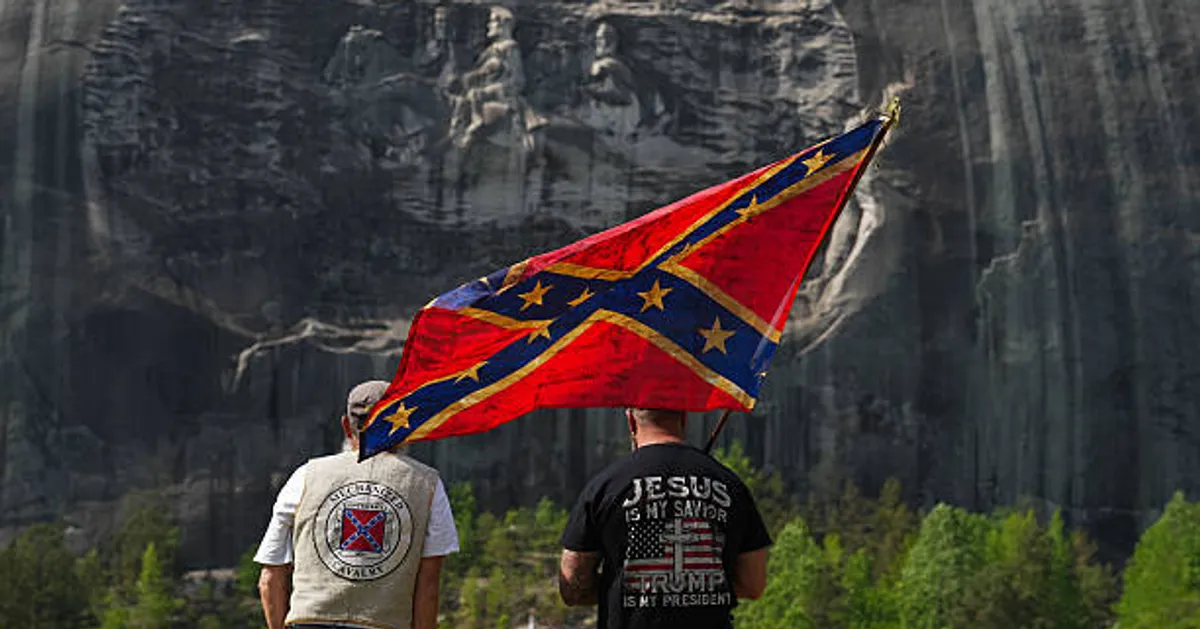
Battle Lines Drawn Over Confederate Tribute at Georgia’s Stone Mountain

GeokHub
Contributing Writer
Tensions have flared anew in Georgia as debates intensify over the future of Stone Mountain, a landmark famed for its massive carved Confederate imagery. Activists, state officials, and civil rights groups now find themselves at odds over whether the granite monument should be preserved, altered, or removed.
Stone Mountain is most known for its relief carving of Jefferson Davis, Robert E. Lee, and Stonewall Jackson on a mountainside—one of the largest Confederate memorials in the U.S. For decades, the site has drawn criticism for glorifying a Confederate legacy rooted in slavery and racial injustice.
In response to mounting national pressure and shifting public sentiment, Georgia Gov. Stacey Abrams recently announced a commission tasked with reviewing the monument’s future. The options under consideration include removing the carving, covering it, or contextualizing it with new historical monuments that reflect the full story of the Civil War and its aftermath.
Civil rights advocates support removal or alteration, calling the monument a painful symbol of exclusion. NAACP leaders and Georgia’s Black legislators have spoken out, insisting that state resources should focus on racial equity rather than maintaining symbols of division. Some community organizers have proposed replacing the Confederate imagery with representations of Reconstruction-era leaders, civil rights icons, or Indigenous figures displaced by European settlers.
Opponents of change argue that Stone Mountain is part of Georgia’s heritage and that history should not be erased. They warn that altering the monument may set a controversial precedent and lead to other attempts to remove historic landmarks across the South. Some residents in nearby counties have also expressed fear that tourism and economic activity tied to the monument could suffer under changes.
Meanwhile, public opinion is deeply divided. Polls show younger generations, particularly Black and Latinx respondents, favor removal, while older or rural populations lean toward preservation. Some observers say the debate reflects America’s broader struggle to reconcile its historical narrative with its present values.
Complicating the matter, Stone Mountain is also a state park and major tourist destination—it attracts visitors for its hiking trails, cable car, festivals, and laser shows. Any alteration would not only be symbolic but also affect park operations, financing, and visitor engagement.
As the state commission deliberates, lawmakers, historians, and public voices alike are working to shape public hearings and legislative proposals. Whatever decision comes next will resonate beyond Georgia, as part of the evolving national conversation about how to remember a complex and painful past.

















































































